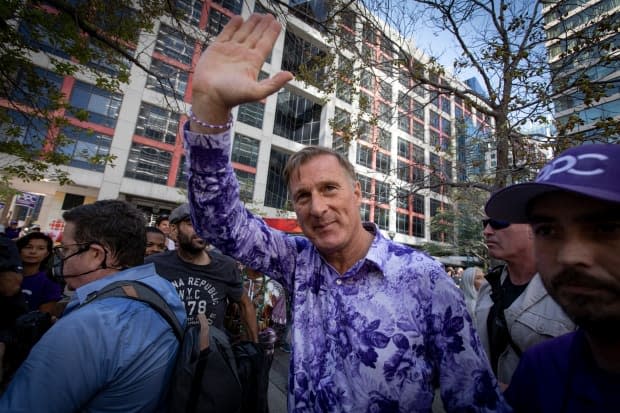People's Party of Canada voters bring a 'big question mark' to the GTA's tightest races

Toronto's Elie Shermer isn't sure if he's going to vote this year.
He's only voted once before, years ago, and can't remember who he supported.
But this year, he knows who he'll check off if he does end up at his polling place on Monday: the People's Party of Canada.
"If I do, I'm thinking PPC," he told CBC Toronto. "They seem to align with how I feel the world is."
That "if" represents a key unknown in the Greater Toronto Area's election results on Monday.
The PPC, led by former Conservative cabinet minister Maxime Bernier, has become a haven for many who oppose COVID-19 vaccine mandates and passports, and who espouse other right-wing positions. They might have been part of the Conservative base in previous elections, but many now think Erin O'Toole's party is too moderate for them.
But while riding-by-riding polling data indicates some support for the People's Party in the GTA — will it materialize at the ballot box?
And, if it does, how will it affect Conservative candidates and their ability to win?
When hundreds of votes make the difference
Those questions are particularly pressing in the GTA's tightest races.
Where Shermer lives, in York Centre, the Conservative and Liberal candidates have been polling neck-and-neck.
Polling at about eight per cent as of Friday, York Centre is also seeing the highest share of the popular vote for the PPC in any of the GTA's toss-up ridings.
A perennial issue on the left, the potential for vote splitting on the right is now leading to warnings from conservative media and politicians alike that a vote for the PPC will only increase the chances of another Trudeau government.
"If they allow that frustration to do anything other than vote Conservative, they're voting for Mr. Trudeau," Conservative Leader Erin O'Toole said of PPC voters on Friday.
Research out this week from political strategy firm Campaign Research suggests a number of ridings are on the line, suggesting that 13 that are currently Liberal could swing blue if former Conservative voters now supporting the PPC end up voting Conservative after all.
Five of those — Richmond Hill, King-Vaughan, Aurora-Oak Ridges-Richmond Hill, Newmarket-Aurora and Oakville — are in the Greater Toronto Area.
"Especially in places in the GTA and in other close ridings… there's just a few thousand votes, sometimes just a few hundred, separating the Liberals and the Conservatives," said Randy Besco, a political science professor at the University of Toronto.
In other words, a few hundred voters switching could be critical for individual ridings.
"It will be hard to prove that that's really why. But it's very plausible that [the Conservatives] will lose at least some votes," said Besco.
"It absolutely could make a difference."
A hazy picture
But there's a good reason why pollind analyst Eric Grenier called the PPC vote a "big question mark" in an interview with CBC News last week.
"A lot of those votes are votes that would normally go to the Conservatives. A lot of them are also people who might have been disengaged from politics in the past, who probably did not cast a ballot," he said.
Writing on his website, thewrit.ca, Grenier said even if former Conservative voters who plan to vote PPC instead switch back to the Conservatives — as O'Toole is imploring them to — it won't, on its own, change the election's result.
"If those seats are awarded to the Conservatives, they'd wind up with 131 and back on the opposition benches," he wrote.
Besco agrees it's important not to overstate the importance of PPC voters this year.
The reasons, he says, are many: polling data can quickly change, turnout on Monday remains unknown, and newer parties don't have deeply entrenched bases of support.
"It's a lot easier for people to come and go. It's easier for them to fluctuate, it's easier for them to not vote, it's easier for them to switch to another party," he said.

